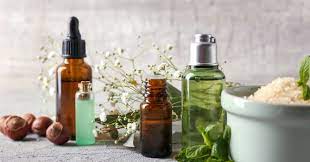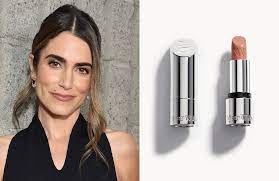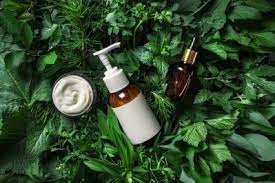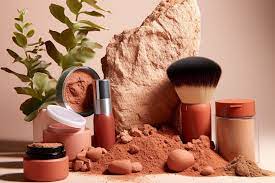In recent years, there has been a growing awareness and demand for organic products across various industries. One sector that has witnessed a significant surge in popularity is organic cosmetics. With people becoming more conscious about what they put on their skin, the demand for natural and organic beauty products has soared.
So, what exactly are organic cosmetics? Unlike conventional cosmetics that often contain synthetic chemicals and additives, organic cosmetics are made from natural ingredients derived from plants, minerals, and other organic sources. These products are free from harmful chemicals like parabens, phthalates, and sulfates that can potentially damage the skin.
One of the main advantages of using organic cosmetics is the absence of harsh chemicals that may cause irritation or allergic reactions. Organic beauty products are formulated with gentle ingredients that work in harmony with your skin, providing nourishment and hydration without any adverse effects.
Organic cosmetics also have a positive impact on the environment. The production of these products involves sustainable farming practices without the use of pesticides or genetically modified organisms (GMOs). By choosing organic beauty products, you contribute to reducing chemical pollution and support eco-friendly practices.
Furthermore, organic cosmetics often come in recyclable or biodegradable packaging, minimizing waste and promoting sustainability. Many brands also prioritize ethical sourcing by ensuring fair trade practices and supporting local communities.
Another compelling reason to embrace organic cosmetics is their effectiveness. Natural ingredients such as plant extracts, essential oils, and botanicals have been used for centuries for their healing properties. These ingredients not only provide nourishment but also offer specific benefits like anti-aging properties, soothing irritated skin, or promoting a healthy complexion.
Moreover, many people find that using organic cosmetics gives them peace of mind knowing they are making healthier choices for themselves and the planet. By opting for natural alternatives to conventional beauty products, individuals can align their values with their everyday routines while still enjoying high-quality skincare solutions.
As the demand for organic cosmetics continues to rise, more and more brands are entering the market, offering a wide range of options to suit different preferences and needs. From skincare products like cleansers, moisturizers, and serums to makeup items such as foundations, lipsticks, and mascaras – there is an organic alternative for almost every beauty product you can think of.
In conclusion, the rise of organic cosmetics signifies a shift towards a more conscious and sustainable approach to personal care. By choosing natural and organic beauty products, consumers can prioritize their well-being while also supporting environmentally friendly practices. So why not make the switch to organic cosmetics today and experience the benefits for yourself? Your skin will thank you, and so will the planet.
8 Essential Tips for Choosing Organic Cosmetics in the UK
- Look for certification
- Read ingredient lists
- Understand labels
- Avoid harsh chemicals
- Consider packaging
- Research brands
- Patch test new products
- Store properly
Look for certification
When it comes to choosing organic cosmetics, one valuable tip to keep in mind is to look for certification. With the increasing popularity of natural and organic beauty products, it’s important to ensure that what you’re purchasing truly meets the standards you expect.
Certification acts as a seal of approval, indicating that a product has undergone rigorous testing and meets specific criteria set by reputable organizations. Look out for certifications from recognized bodies such as COSMOS, Soil Association, Ecocert, or USDA Organic.
These certifications provide assurance that the product contains a high percentage of organic ingredients and that it has been manufactured using sustainable practices. They also ensure that the product is free from harmful chemicals, synthetic fragrances, and genetically modified organisms (GMOs).
By choosing certified organic cosmetics, you can have confidence in the integrity and authenticity of the product. You can trust that it has been produced with respect for both your well-being and the environment.
Remember to check for certification logos on product packaging or websites. This simple step will help you make informed choices and select organic cosmetics that align with your values.
So, next time you’re shopping for natural beauty products, don’t forget to look for certification. It’s your guarantee of quality and an easy way to ensure that you’re truly embracing the benefits of organic cosmetics.
Read ingredient lists
When it comes to choosing organic cosmetics, one essential tip stands out above the rest: always read ingredient lists. Understanding what goes into the products you use on your skin is crucial for making informed decisions about your beauty routine.
The ingredient list is like a window into the product’s composition, revealing the key components that make up the formula. By taking a few moments to scan this list, you can gain valuable insights into whether a cosmetic truly aligns with your organic and natural preferences.
Organic cosmetics typically feature ingredients sourced from nature, such as plant extracts, essential oils, and minerals. By reading the ingredient list, you can check for these natural components and ensure that they are prominently featured. Look out for familiar botanical names or recognizable plant-based oils known for their beneficial properties.
Equally important is what’s not on the list. Organic cosmetics often steer clear of synthetic chemicals like parabens, phthalates, and sulfates that can potentially harm your skin or cause irritation. By reading the ingredient list carefully, you can identify any undesirable additives that you may wish to avoid.
If you come across an ingredient that you’re unsure about, take a moment to research it further. Numerous online resources provide information on cosmetic ingredients and their potential effects. This extra step empowers you with knowledge and enables you to make an educated decision about whether a product meets your personal standards for organic cosmetics.
By reading ingredient lists, you become an informed consumer who actively participates in their skincare choices. You have the power to select products that align with your values while promoting healthier alternatives for yourself and the environment.
Remember: when it comes to organic cosmetics, knowledge is key. So take a moment before purchasing or using a product to read its ingredient list carefully. Your skin will thank you for it!
Understand labels
When it comes to purchasing organic cosmetics, one important tip is to understand labels. With so many products claiming to be “natural” or “organic,” it’s crucial to know what to look for and how to decipher the labels.
Firstly, check for certifications. Look for logos or seals from reputable organic certification bodies such as COSMOS, USDA Organic, or Ecocert. These certifications ensure that the product meets specific standards for organic ingredients and manufacturing processes.
Next, read the ingredient list carefully. Organic cosmetics should contain a high percentage of natural and organic ingredients. Look for familiar botanical names like aloe vera, shea butter, or essential oils. Avoid products that list synthetic chemicals or artificial fragrances at the top of the ingredient list.
It’s also worth noting that some products may not be 100% organic but still contain a significant amount of natural ingredients. In such cases, look for clear labeling that specifies the percentage of organic content in the product.
Understanding labels also means being aware of greenwashing – when a product falsely claims to be natural or organic. Don’t be swayed by flashy marketing terms like “green,” “eco-friendly,” or “all-natural” without scrutinizing the ingredient list and certifications.
Lastly, remember that personal preferences vary. Some individuals may have specific allergies or sensitivities to certain ingredients. If you have any concerns, consult with a dermatologist or do thorough research on individual ingredients before making a purchase.
By understanding labels and knowing what to look for when buying organic cosmetics, you can make informed choices that align with your values and skincare needs. So take your time, read those labels carefully, and enjoy the benefits of truly natural and organic beauty products!
Avoid harsh chemicals
When it comes to taking care of our skin, one important tip to keep in mind is to avoid harsh chemicals. In recent years, there has been a growing concern about the potential negative effects of synthetic chemicals found in many conventional beauty products. This has led to an increased interest in organic cosmetics.
Harsh chemicals like parabens, phthalates, and sulfates can be found in various skincare and makeup products. These chemicals have been linked to skin irritation, allergies, and even more serious health concerns. By opting for organic cosmetics, you can eliminate the risk of exposing your skin to these potentially harmful substances.
Organic cosmetics are made from natural ingredients derived from plants, minerals, and other organic sources. They are free from synthetic chemicals that may cause damage or irritation to the skin. Instead, they harness the power of nature’s goodness to provide nourishment and promote healthy skin.
By choosing organic cosmetics, you not only prioritize your own well-being but also contribute to a more sustainable planet. Organic beauty products are often produced using environmentally friendly practices such as sustainable farming methods and ethical sourcing of ingredients. They also come in recyclable or biodegradable packaging, reducing waste and supporting eco-friendly initiatives.
So next time you’re shopping for skincare or makeup products, take a moment to check the ingredient list and choose organic alternatives that are free from harsh chemicals. Your skin will thank you for it! Embrace the power of nature’s ingredients and enjoy the benefits of gentle yet effective organic cosmetics.
Consider packaging
When it comes to choosing organic cosmetics, one often overlooked aspect is the packaging. While the focus is usually on the ingredients and their benefits, it’s important to consider the packaging as well.
Opting for organic cosmetics that come in sustainable packaging can make a significant difference in reducing waste and promoting a greener lifestyle. Look for brands that use recyclable materials such as glass or cardboard instead of plastic. Glass containers not only have a luxurious feel but are also easily recyclable and can be reused for other purposes.
Additionally, consider brands that offer refillable options. These allow you to reuse the same container while simply replacing the product inside, reducing both packaging waste and your carbon footprint.
Another important consideration is whether the packaging is biodegradable or compostable. This ensures that even if the packaging does end up in landfills, it will break down naturally over time without harming the environment.
By choosing organic cosmetics with eco-friendly packaging, you contribute to reducing plastic waste and supporting sustainable practices. It’s a small but impactful step towards a more environmentally conscious lifestyle.
So next time you’re shopping for organic cosmetics, take a moment to consider the packaging. By making mindful choices, you can enjoy your favourite beauty products while minimizing your impact on our planet.
Research brands
When it comes to choosing organic cosmetics, one of the most important tips is to research brands before making a purchase. With the increasing popularity of organic beauty products, it’s essential to ensure that the brands you choose are truly committed to organic and natural principles.
Start by looking for certifications and labels that indicate a brand’s commitment to organic standards. Certifications like COSMOS Organic or USDA Organic guarantee that the products meet strict criteria for organic ingredients and sustainable manufacturing practices. These certifications provide reassurance that the brand is transparent about its sourcing and production methods.
Additionally, take the time to read customer reviews and testimonials about the brand and its products. Feedback from other consumers can give you insights into the effectiveness, quality, and overall experience of using their cosmetics. Look for reviews from people with similar skin types or concerns to get a better understanding of how the products might work for you.
Researching brands also involves investigating their ingredient lists. Check if they clearly disclose all ingredients used in their products. This will help you identify any potential allergens or irritants that may not be suitable for your skin type. Familiarize yourself with common natural ingredients used in organic cosmetics, so you can make informed decisions about what works best for you.
Furthermore, delve into a brand’s sustainability practices. Look for information on their packaging materials, recycling initiatives, and commitment to reducing waste. Brands that prioritize sustainability show a genuine dedication not only to your well-being but also to environmental stewardship.
Lastly, consider a brand’s ethos and values. Look for companies that align with your own values regarding animal testing, fair trade practices, and social responsibility. Brands that are cruelty-free or vegan-friendly demonstrate a commitment to ethical standards beyond just using organic ingredients.
By thoroughly researching brands before purchasing their organic cosmetics, you can ensure that your choices align with your personal preferences and values. You’ll have peace of mind knowing that you’re investing in high-quality products from brands that prioritize organic, sustainable, and ethical practices. So, take the time to do your homework and discover the perfect organic cosmetics that will enhance your beauty routine while supporting a healthier planet.
Patch test new products
When it comes to trying out new organic cosmetics, one essential tip to keep in mind is to always perform a patch test before fully incorporating the product into your routine. This simple step can help you avoid potential allergic reactions or skin irritations.
Patch testing involves applying a small amount of the product onto a small area of your skin, typically on your inner forearm or behind your ear. Leave it on for 24-48 hours and closely observe any negative reactions such as redness, itching, or swelling. If no adverse effects occur during this time, it is generally safe to assume that the product is suitable for your skin.
Even if you have used organic cosmetics before without any issues, it’s still important to patch test new products. Each person’s skin is unique and may react differently to various ingredients. By taking a few minutes to do a patch test, you can identify any potential sensitivities before applying the product to larger areas of your face or body.
Patch testing is particularly crucial for individuals with sensitive or allergy-prone skin. Organic cosmetics may contain natural extracts or essential oils that could trigger an allergic reaction in some individuals. By conducting a patch test, you can minimize the risk and ensure that the product suits your skin’s specific needs.
Remember, prevention is always better than cure when it comes to skincare. Patch testing new organic cosmetics allows you to make informed decisions about which products are suitable for you and helps maintain the health and integrity of your skin.
So, whenever you’re excited about trying out a new organic cosmetic product, don’t forget this important tip: take a moment for a patch test. Your skin will thank you for it!
Store properly
When it comes to organic cosmetics, proper storage is key to maintaining their quality and effectiveness. Unlike conventional beauty products that often contain preservatives and stabilizers, organic cosmetics rely on natural ingredients that may be more sensitive to environmental factors.
To ensure the longevity of your organic beauty products, it’s important to store them in a cool, dry place away from direct sunlight. Excessive heat and sunlight can degrade the natural ingredients and reduce their potency over time. Therefore, avoid placing your organic cosmetics near windowsills or in hot and humid areas like bathrooms.
Additionally, it’s essential to keep the lids tightly closed after each use. This helps prevent air exposure and maintains the product’s freshness. Oxygen can cause oxidation, which may alter the formulation of organic cosmetics and reduce their effectiveness.
If you have multiple organic beauty products, consider organizing them in a designated storage area or drawer. This not only keeps them protected but also makes it easier for you to find what you need without rummaging through cluttered spaces.
Lastly, pay attention to the expiration dates of your organic cosmetics. While these products tend to have shorter shelf lives compared to conventional ones due to their natural formulations, using them past their expiration dates may result in reduced efficacy or potential skin irritation. It’s always better to be safe than sorry when it comes to skincare.
By following these simple tips for proper storage of your organic cosmetics, you can ensure that they remain fresh, effective, and enjoyable for longer periods. Taking care of your organic beauty products not only extends their lifespan but also maximizes the benefits they provide for your skin and overall well-being.




